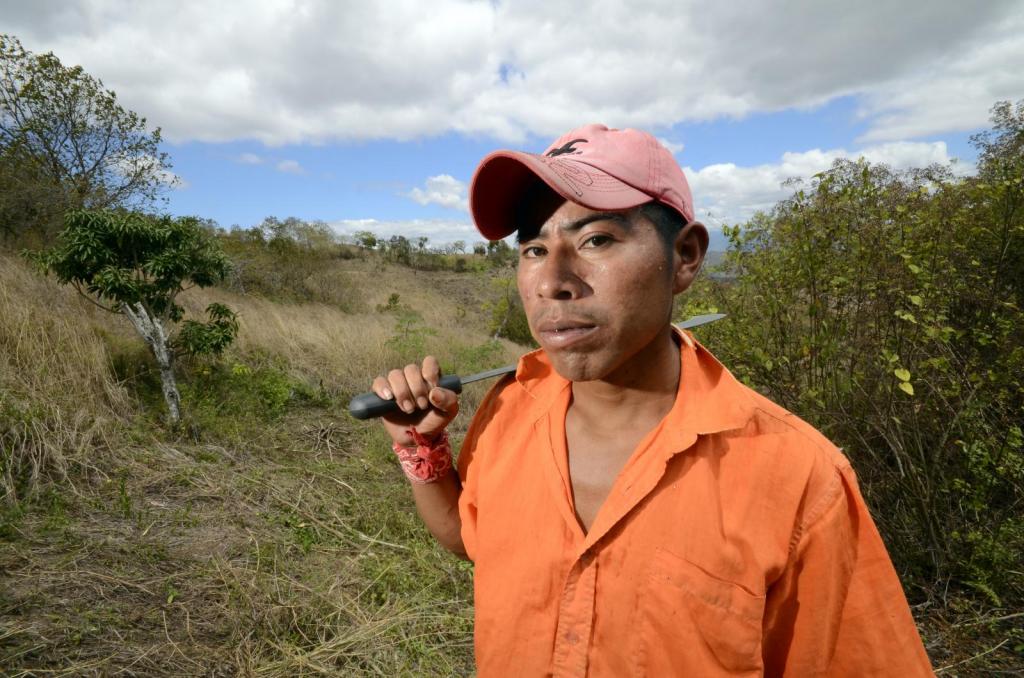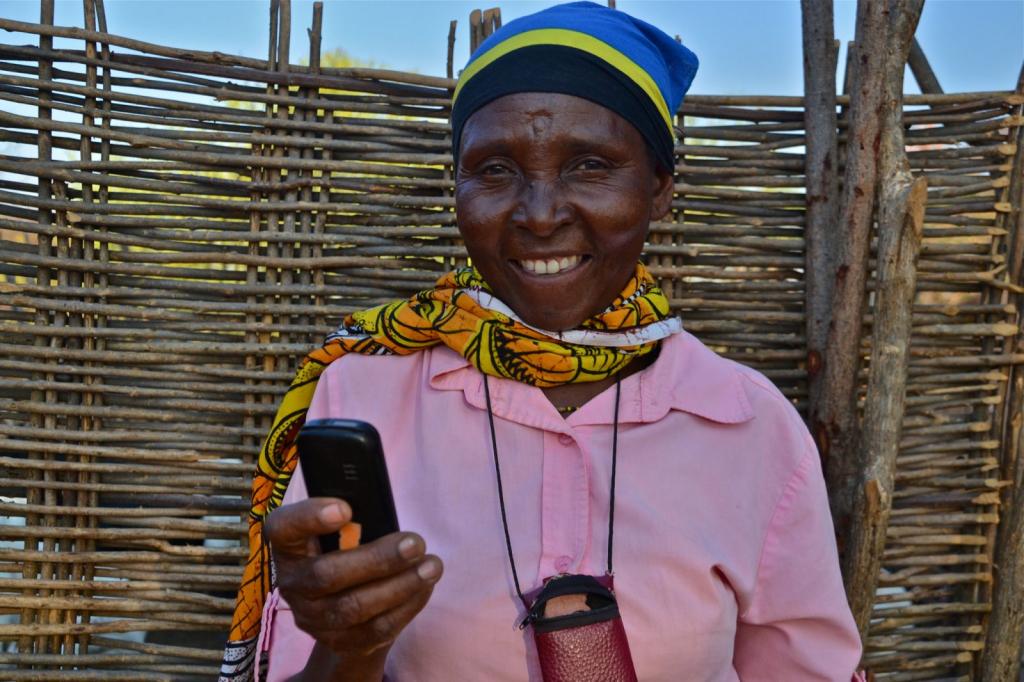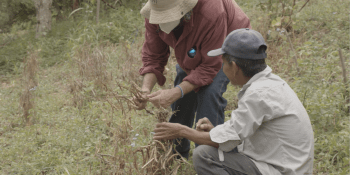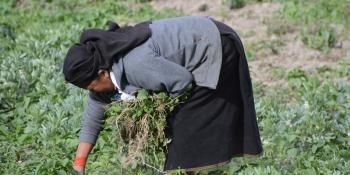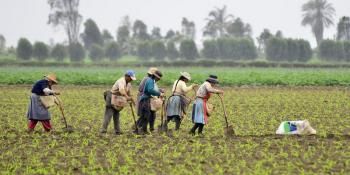Blogging an impact story: highlights from linking knowledge with action
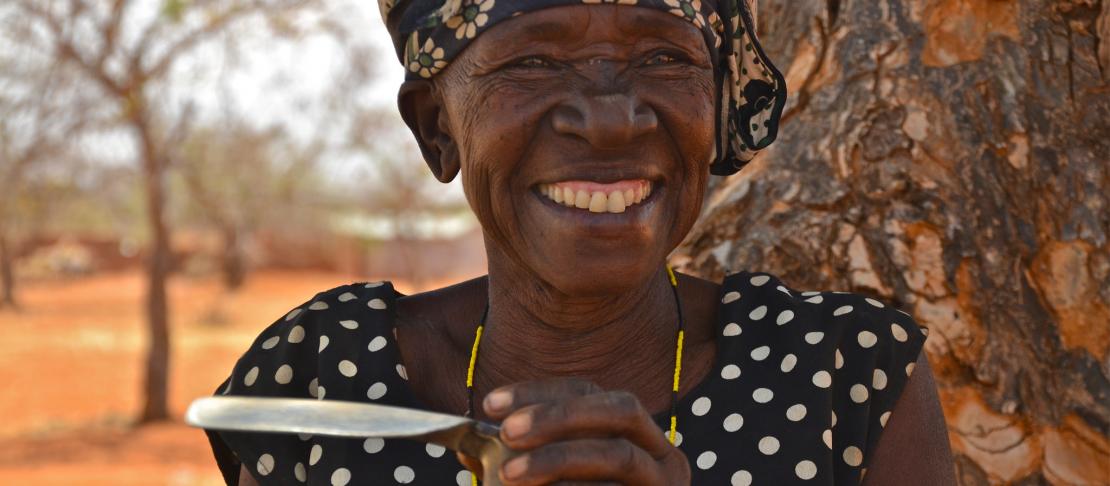
Theme 'Linking Knowledge with Action' is now leaving space for CCAFS next phase, where the work will be mainstreamed throughout program. Here are highlights, success stories and lessons learned.
Linking Knowledge with Action was established at the outset of the CGIAR Research Program on Climate Change, Agriculture and Food Security (CCAFS) as a theme aimed at enhancing the impact of the program’s research efforts.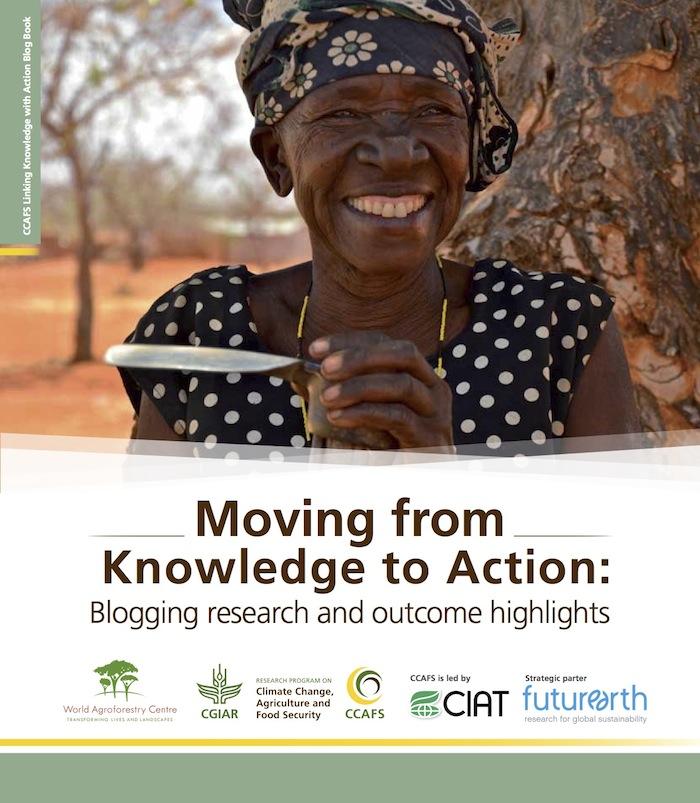
The goal was to catalyze new and innovative high impact research amongst strategic partners in CCAFS regions and research areas, and enhance their knowledge of social learning, gender transformative research, and other innovative approaches leading to measurable scale and impact.
The extensive work has been captured in the booklet "Moving from Knowledge to Action: Blogging research and outcome highlights" (PDF) featuring chapter introductions and blogs from throughout the year that tell the story of the theme's research, work and achievements.
'Linking Knowledge with Action' - work and structure
To reach envisioned goals, the research team has taken an iterative learning approach - actions inform research as much as the knowledge generated through research informs actions.
Together with partners the team has explored effective strategies, new knowledge, tools and capacity developed for research on gender and innovation, that transforms smallholder agricultural systems, making them more equitable and resilient to a changing climate.
The guiding and over-arching research question for the theme has been ‘How do we achieve large-scale smallholder agricultural development in the urgent context of climate change’? And more specifically, ‘What are the tools, approaches, strategies and institutions that can help increase the likelihood that CCAFS research will create knowledge and actions that sustainably and equitably enhance livelihoods of the poor’?
These questions have been addressed through a focus on three critical ‘cross-cutting’ research areas, those described in this book, namely:
- Innovations in Research, Partnerships and Communications;
- Gender and Social Differentiation; and
- Future Scenarios.
Development successes and research highlights
The successes from the theme include partnering with a media company that 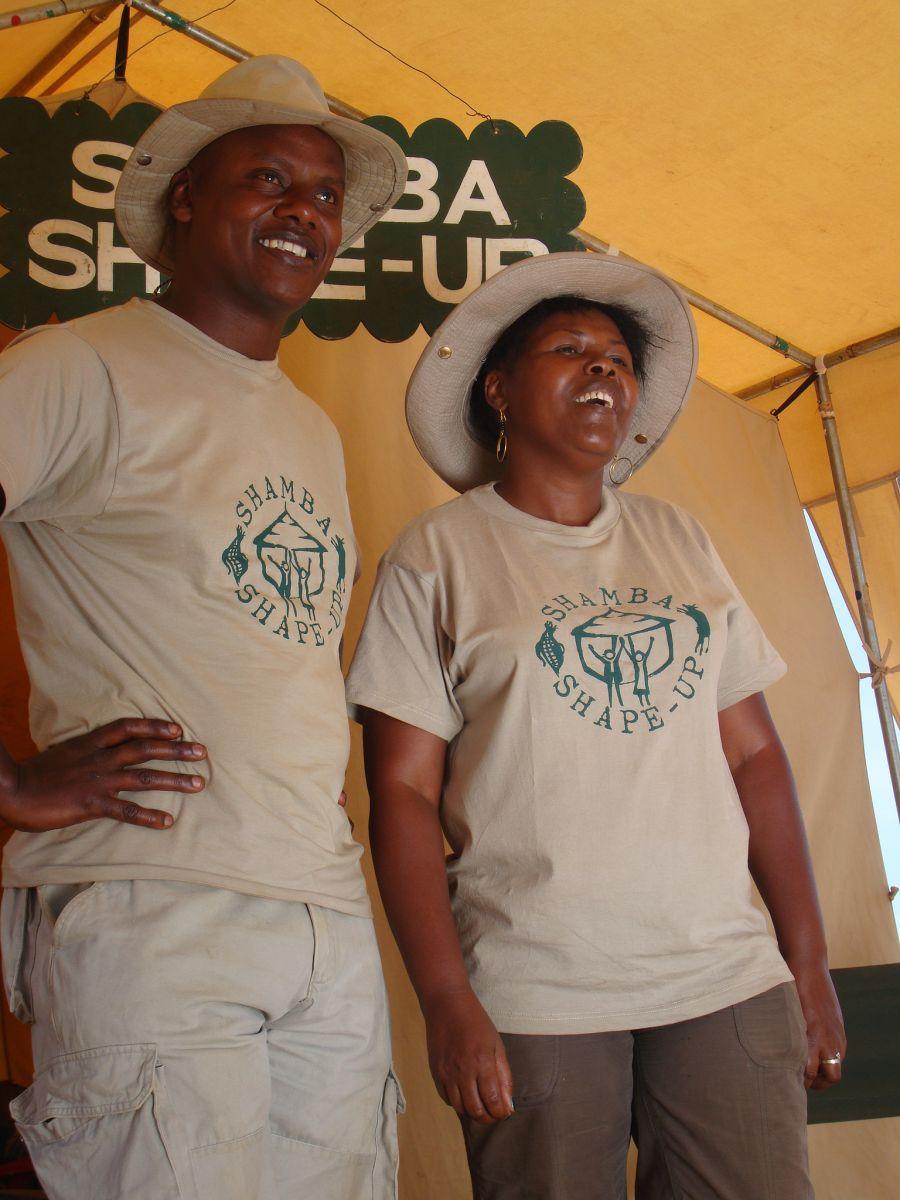 airs the successful agricultural make-over TV-show Shamba Shape Up to over 10 million viewers across East Africa.
airs the successful agricultural make-over TV-show Shamba Shape Up to over 10 million viewers across East Africa.
This partnership has helped CCAFS reach millions of farmers with climate-smart agriculture information presented in a fun and engaging way by CGIAR experts, extension workers and the private sector.
Research shows that the TV-show is having substantial impact on smallholders in Kenya, as they are implementing what they see - climate-smart agriculture practices and techniques - and are reaping the benefits.
Learn more: These are some of the impacts an agriculture TV-show can have.
Gender and socially inclusive participatory research methods co-created with farmers and local partners have proven to be most relevant to the needs of CCAFS research and development partners.
Now, a Participatory Gender and Inclusion Toolbox is available to researchers and development practitioners, developed together with CARE International, World Agroforestry Centre and local farmer groups. Already downloaded 3,000 times, this Toolbox is pushing gender-sensitive research to the next level and was proved to be a successful experiment in social learning.
Learn more: New toolbox for gender and inclusion in climate change projects
Future scenarios planning and modeling is being taken up by, and influencing, national Governments, institutions and stakeholders to further improve climate strategies and policies across CCAFS five regions. Great progress has been made in implementing improvements highlighted during scenario modeling workshops. In Cambodia, future scenario development and climate-smart agriculture are now included in the country's "Climate Change Priorities Action Plan for Agriculture". The scenarios work will continue under CCAFS flagship 4 on "Policies and Institutions for Climate-Resilient Food-Systems".
Learn more about the Future Scenario process: Helping Honduras build a more robust climate adaptation strategy for the agriculture sector, and other blogs.
What are key lessons learned?
This research area is referred to as ‘translational’ research. Many researchers continue to see the challenge as one of doing a better job of ‘translating’ research results into language or actions that are more easily taken up by others. But a key lesson from this work is that it is about much more than just translating or better explaining and communicating complex issues and research findings.
It is about making sure the ultimate users - government agencies, policy makers, researchers, non-governmental organizations, private sector actors - are involved in defining the research questions from the outset, as well as in the co-design and strategic targeting and communication of products arising from the research i.e. papers, policy briefs, reports, maps, presentations, blogs, and more.
Evaluating the contribution of agricultural research to development has always been a challenge. Research alone does not lead to impact, but research does generate knowledge that actors can put into use to generate development outcomes. Truly understanding and demonstrating impact can be elusive however. The first step is to reduce the barriers that separate research from the development process; to do research for development in development with our development partners.
Time poses one of the biggest challenges to this innovative type of research. The kinds of behavioral and institutional changes that need to occur, and are occurring, take longer than the typical 2-3 year project cycle. “Messy” partnerships pose another challenge. The team has found that institutional constraints and poor incentives for collaborative work are different for all partners, but they all face them.
But the opportunities are also great. The team has learned a lot about how to more effectively and efficiently deal with the challenges over the last few years. For example, we have streamlined collaborative impact pathway development approaches for better project and program implementation strategies and plans, and are sharing these training materials to help build partners’ capacity in this approach, as well as new gender-targeted research approaches. The forward-looking joint adaptation and mitigation planning that is happening with influential partners in many CCAFS countries is another example.
Social media and mobile phones offer new opportunities for two-way communication with researchers and users, and crowd-sourcing approaches can get feedback from huge numbers of farmers - importantly including women for practically the first time.
And we cannot underemphasize the importance of the ongoing shift in the science world to open access. This is aiding the widespread sharing of knowledge that previously was restricted to a relatively small number of people that had access to academic journals.
Knowledge to action principles and approaches have now been integrated into the new CCAFS flagship programs and regions structure, also known as “CCAFS Phase 2”, and will thus no longer exist as a stand alone research theme. It will be important to keep up the momentum, ensuring that resources are dedicated to pursuing innovative knowledge to action with objective and well-documented science.
Learn more - download: Moving from Knowledge to Action: Blogging research and outcome highlights. Ed: Kristjanson P, Jost C, Vervoort J, Ferdous N, Schubert C. 2014. CGIAR Research Program on Climate Change, Agriculture and Food Security (CCAFS). Copenhagen: Denmark.
Or, read the book on ISSUU here.
Selected Key 'Linking Knowledge with Action' resources:
- Challenges to scenario-guided adaptive action on food security under climate change (Journal)
- Adaptation Actions in Africa: Evidence that Gender Matters (PDF)
- Gender and Inclusion Toolbox: Participatory Research in Climate Change and Agriculture (PDF)
- New evaluation report on Shamba Shape Up by Reading University (Summary PDF)
Story by theme "Linking Knowledge with Action". Photos in the story by Susan McMillan (ILRI), Neil Palmer (CIAT), and Cecilia Schubert (CCAFS). Booklet cover photo by Cecilia Schubert (CCAFS).

